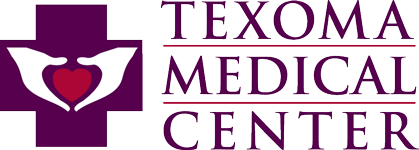Treating Disorders of the Urinary Tract and Male Reproductive Systems
Urologists at Texoma Medical Center in Grayson County, TX, focus on diagnosing and treating diseases of the male and female urinary tract system and the male reproductive organs. This includes diseases of the kidneys, ureters, bladder and urethra in both sexes – and the prostate, testicles and surrounding structures in men.
Nationally recognized for treating kidney failure
 Texoma Medical Center in Denison, TX, was named a High Performing Hospital for Kidney Failure by U.S. News & World Report in 2024-25. This is in recognition of care significantly better than the national average, measured by factors such as patient outcomes.
Texoma Medical Center in Denison, TX, was named a High Performing Hospital for Kidney Failure by U.S. News & World Report in 2024-25. This is in recognition of care significantly better than the national average, measured by factors such as patient outcomes.
Make an appointment
Complete our appointment form or call the free referral service 903‑416‑3627.
Urology Condition Treatments
Specialists at Texoma Medical Center in Denison, TX, use advanced treatment options, including both surgical and non-surgical interventions, for these conditions:
Cancer
Cancer can affect organs of the urinary tract system such as the kidneys and bladder, as well the prostate and testicles in the male reproductive system.
Kidney stones
According to the National Kidney Foundation, more than half a million people visit emergency rooms each year for kidney stones. Kidney stones are crystallized masses that develop from substances in the urine. One of the main causes of kidney stones is the lack of fluids in the body. A high-protein diet and high-salt diet are other risk factors.
Enlarged prostate
One of the most common problems in men over the age of 50 is benign prostatic hyperplasia (BPH) or an enlarged prostate, according to the National Institutes of Health. By age 60, more than 50 percent of men have this problem. By age 85, the number climbs to 90 percent. As the prostate enlarges, it can cause symptoms that obstruct the bladder including:
- Need to frequently empty the bladder (every 1-2 hours)
- Sensation that the bladder isn't empty, even after urinating
- Weak urinary stream
- Dribbling of urine, or the need to stop and start several times for the bladder to empty
-
Trouble starting to urinate, often requiring the patient to strain i
There are treatments available to treat BPH, including medications that shrink the enlarged prostate or stop the prostate cell growth, minimally invasive therapies that use heat to destroy prostate tissue and surgical techniques to resect or remove the prostate.
Erectile dysfunction and urology services
Erectile dysfunction (ED) can be a total inability to achieve an erection, an inconsistent ability to do so, or a tendency to sustain only brief erections. While it becomes more common as men age, ED can result from a combination of physical, medical and psychological factors. ED can be early warning sign of more serious illness and treatment might include medication.
Urinary incontinence
Urinary incontinence (UI) is the unintentional, accidental loss of urine. It often indicates that the urethra cannot close completely, making it possible for urine to leak from the bladder. Women experience UI twice as often as men. Some women experience urine leakage while coughing, sneezing or during strenuous exercise. Treatment may include exercises, medicine or surgery.
Urinary tract infection
A urinary tract infection, or UTI, is an infection in the urinary system, which includes the bladder and the kidneys. Antibiotics are typically used to treat UTIs. Common symptoms are:
- Burning or pain in the lower abdomen
- Fever
- Bloody urine may be a sign of infection
-
Burning during urination or an increase in the frequency of urination
Find a doctor
Get a free physician referral at Texoma Medical Center in Texas 903-416-3627 or search for a doctor online.
